|
Books Should Be Free Loyal Books Free Public Domain Audiobooks & eBook Downloads |
|
|
Books Should Be Free Loyal Books Free Public Domain Audiobooks & eBook Downloads |
|
Literature |
|---|
|
Book type:
Sort by:
View by:
|
By: Henry L. Mencken | |
|---|---|
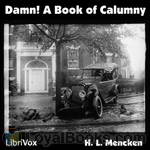 Damn! A Book of Calumny
Damn! A Book of Calumny
Henry Louis “H. L.” Mencken (1880 – 1956) was an American journalist, essayist, magazine editor, satirist, acerbic critic of American life and culture, and a student of American English. Known as the “Sage of Baltimore”, he is regarded as one of the most influential American writers and prose stylists of the first half of the 20th century. Mencken is perhaps best remembered today for The American Language, a multi-volume study of how the English language is spoken in the United States, and for his satirical reporting on the Scopes trial, which he named the “Monkey” trial.” | |
By: William Morris (1834 — 1896) | |
|---|---|
 The Wood Beyond the World
The Wood Beyond the World
MANUAL OF SURGERY, OXFORD MEDICAL PUBLICATIONSBY ALEXIS THOMSON, F.R.C.S.Ed.PREFACE TO SIXTH EDITION Much has happened since this Manual was last revised, and many surgical lessons have been learned in the hard school of war. Some may yet have to be unlearned, and others have but little bearing on the problems presented to the civilian surgeon. Save in its broadest principles, the surgery of warfare is a thing apart from the general surgery of civil life, and the exhaustive literature now available on every aspect of it makes it unnecessary that it should receive detailed consideration in a manual for students... | |
 News From Nowhere
News From Nowhere
News from Nowhere (1890) is a classic work combining utopian socialism and soft science fiction written by the artist, designer and socialist pioneer William Morris. In the book, the narrator, William Guest, falls asleep after returning from a meeting of the Socialist League and awakes to find himself in a future society based on common ownership and democratic control of the means of production. In this society there is no private property, no big cities, no authority, no monetary system, no divorce, no courts, no prisons, and no class systems... | |
 The Well at the World's End, Book 1: The Road unto Love
The Well at the World's End, Book 1: The Road unto Love
The Well at World's End is thought to be one of the first examples of an entirely fictional fantasy world, and has greatly influenced later fantasy writers such as C.S. Lewis and J.R.R. Tolkien. The book follows the travels of Ralph, a prince of a tiny country, as he disobeys his fathers wishes and runs away from home to adventure in the world, and seek out the fabled Well at World's End, said to grant eternal youth to those who drink from it. | |
 The House of the Wolfings
The House of the Wolfings
William Morris (1834-1896) was a writer, illustrator and medievalist from the Romantic period and associated with other renowned authors of the time such as Dante Rossetti. His fascination with ancient Germanic and Norse people dominated his writings, the first to be set in an entirely invented fantasy world and which helped to establish the fantasy genre. The House of Wolfings (1890), some argue, is a demonstration of Morris' socialism as the society described, though not an utopia, is clan-based, elects leaders and makes decisions in clan tribal meetings... | |
By: Grace Livingston Hill (1865-1947) | |
|---|---|
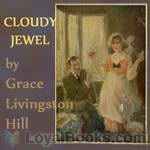 Cloudy Jewel
Cloudy Jewel
Julia Cloud, the oldest--and most responsible--child of her family, helped raise her four siblings due to their mother's long-time illness and father's death. After faithfully nursing two ill brothers (who died), she then cared for her invalid mother for many years. When Julia's mother passes on, her only surviving sibling Ellen fully expects--and nearly demands--that her spinster sister come live with her family. But to earn her keep, Julia must be their live-in housekeeper and babysitter for Ellen's four children. But Julia's college-age niece and nephew arrive unexpectedly from California and offer Aunt Cloudy Jewel a surprise opportunity she never expected in her wildest dreams. | |
 Marcia Schuyler
Marcia Schuyler
A compelling love triangle. Marcia is young & sweet. Her older sister Kate is vain & selfish. Marcia deeply admires the man that Kate is to marry: handsome & respected David Spafford. But on the eve of the wedding, Kate elopes with another man. Marcia is there when the note is found...the note that effectively breaks David's heart. Out of pity for his situation, Marcia offers to take Kate's place, in order to save David from humiliation. She grows in love for him, all the while aware that he's still grieving for his lost Kate. What will happen when Kate returns, fully intending to get David back? Will Marcia have the strength to fight for the man she now loves? | |
By: Ernest William Hornung (1866-1921) | |
|---|---|
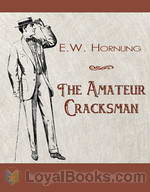 The Amateur Cracksman
The Amateur Cracksman
“I’d tasted blood, and it was all over with me. Why should I work when I could steal? Why settle down to some humdrum uncongenial billet, when excitement, romance, danger and a decent living were all going begging together” – A. J. Raffles, The Ides of March. | |
By: William Clark Russell (1844-1911) | |
|---|---|
 The Frozen Pirate
The Frozen Pirate
Sailing adventure with storms, icebergs, shipwrecks, treasure, and the reawakening of a pirate frozen in suspended animation for nearly fifty years | |
By: Irvin S. Cobb (1876-1944) | |
|---|---|
 Cobb's Anatomy
Cobb's Anatomy
Irvin Shrewsbury Cobb was born on June 23, 1876. At seventeen years of age, he began writing for the Paducah Daily News, his hometown paper. At nineteen he became the managing editor; up to that point, our nation’s youngest. He worked as a columnist, a humorist and an author. But ‘horror,’ and ’short stories,’ are not why he is remembered. He is remembered because he was, and still is, funny. And although he is now dead–he died March 11, 1944–this work “Cobb’s Anatomy,” among others, has left an indelible mark upon mankind: a smile. | |
 One Third Off
One Third Off
Irvin Shrewsbury Cobb (June 23, 1876–March 11, 1944) was an American author, humorist, and columnist who lived in New York and wrote over 60 books and 300 short stories. Cobb has been described as “having a round shape, bushy eyebrows, full lips, and a triple chin. He always had a cigar in his mouth.” This book is a hilarious account of Cobb’s attempts at weight-loss. | |
By: Alfred Noyes (1880-1958) | |
|---|---|
 Drake
Drake
Alfred Noyes, in the blank-verse epic "Drake", fictionalizes the historical Francis Drake, who, during the reign of Elizabeth I of England, sailed (and plundered) on the Spanish Main and beyond. | |
By: William Dean Howells (1837-1920) | |
|---|---|
 My Mark Twain
My Mark Twain
William Dean Howells (1837-1920) became fast friends with Mark Twain from the moment in 1869 when Twain strode into the office of The Atlantic Monthly in Boston to thank Howells, then its assistant editor, for his favorable review of Innocents Abroad. When Howells became editor a few years later, The Atlantic Monthly began serializing many of Twain’s works, among them his non-fiction masterpiece, Life on the Mississippi. In My Mark Twain, Howells pens a literary memoir that includes such fascinating scenes as their meetings with former president Ulysses Grant who was then writing the classic autobiography that Twain would underwrite in the largest publishing deal until that time... | |
 A Little Swiss Sojurn
A Little Swiss Sojurn
A charming brief account of a two months' autumnal stay on the shores of the Lake of Geneva. Howells, who was there with his family traveling from England to Italy, has a sharp eye not only for scenery and architecture, but for people and customs, both Swiss and foreign. | |
 Annie Kilburn
Annie Kilburn
After 11 years in Rome, Annie Kilburn returns home to the US after the death of her father. But the home she knew is dramatically changed in many ways. She starts to work with sick children, and finds herself attached to them, and to the minister who helps her, Mr. Peck. | |
 Hazard of New Fortunes
Hazard of New Fortunes
Howell’s novel is set in New York of the late nineteenth century, a city familiar to readers of Edith Wharton and Henry James. Basil March, a businessman from Boston of a literary bent, moves with his family to New York to edit a new journal founded by an acquaintance. Its financial support, however, comes from a Mr. Dryfoos, a Pennsylvania Dutch farmer suddenly become millionaire by the discovery of natural gas on his property, and now living in New York with his family in a style he hopes will befit his new wealth... | |
 Coast of Bohemia
Coast of Bohemia
William Dean Howells is at his iconoclastic best in this exploration of bourgeois values, particularly in the clash between respectable society and the dubious bohemian world of Art and Poetry. Cornelia Saunders has everything going for her in her middle-class world: comfort, good looks, attentive young men. She seems willing to risk it all for the sake of what might be an artistic Gift, venturing with great trepidation to put her foot over the line into Bohemia to see if it might be the thing for her. Skewering the conventions of sentimental literature as usual, Howells keeps the reader guessing to the end as to the fate of Cornelia and her Gift. | |
By: Carl Sandburg (1878-1967) | |
|---|---|
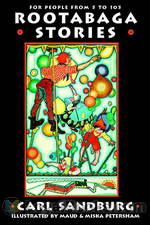 Rootabaga Stories
Rootabaga Stories
Carl Sandburg is beloved by generations of children for his Rootabaga Stories and Rootabaga Pigeons (which is not in the public domain), a series of whimsical, sometimes melancholy stories he originally created for his own daughters. The Rootabaga Stories were born of Sandburg’s desire for “American fairy tales” to match American childhood. He felt that the European stories involving royalty and knights were inappropriate, and so populated his stories with animals, skyscrapers, trains, corn fairies, and other colorful characters. | |
By: Ernest Bramah (1868-1942) | |
|---|---|
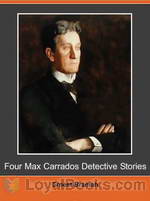 Four Max Carrados Detective Stories
Four Max Carrados Detective Stories
Ernest Bramah is mainly known for his ‘Kai Lung’ books – Dorothy L Sayers often used quotes from them for her chapter headings. In his lifetime however he was equally well known for his detective stories. Since Sherlock Holmes we have had French detectives, Belgian detectives, aristocratic detectives, royal detectives, ecclesiastical detectives, drunken detectives and even a (very) few quite normal happily married detectives. Max Carrados was however probably the first blind detective. | |
 Wallet of Kai Lung
Wallet of Kai Lung
The Wallet of Kai Lung is a collection of fantasy stories by Ernest Bramah, all but the last of which feature Kai Lung, an itinerant story-teller of ancient China. The collection's importance in the history of fantasy literature was recognized by the anthologization of two of its tales in the celebrated Ballantine Adult Fantasy Series. | |
By: Mary Godolphin (1781-1864) | |
|---|---|
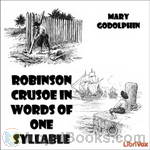 Robinson Crusoe in Words of One Syllable
Robinson Crusoe in Words of One Syllable
Mary Godolphin was the pseudonym of Lucy Aikin who undertook translating great literature into single-syllable words so that young readers could enjoy plots that were considerably more interesting than, say, the McGuffey readers of the 1880’s or the “Dick and Jane” primers of the 1950s (still around today as “decodable readers” in elementary schools). She produced this volume based on Daniel Defoe’s most famous work, considered by many to be the first English novel (1719). She also rendered Bunyan’s Pilgrim’s Progress and Wyss’ Swiss Family Robinson, which she translated as well. | |
By: Friedrich Nietzsche (1844-1900) | |
|---|---|
 Case of Wagner / Nietzsche Contra Wagner / Selected Aphorisms
Case of Wagner / Nietzsche Contra Wagner / Selected Aphorisms
A collection of three of Nietzsche's writings concerning the music of Wagner. In particular, he relates Wagner's music as degenerate, unrefined and unintelligent and relates it to a gradually degenerating German culture and society. The translator provides a detailed introduction. | |
By: Hilaire Belloc | |
|---|---|
 First and Last
First and Last
“When a man weighs anchor in a little ship or a large one he does a jolly thing! He cuts himself off and he starts for freedom and for the chance of things. He pulls the jib a-weather, he leans to her slowly pulling round, he sees the wind getting into the mainsail, and he feels that she feels the helm. He has her on a slant of the wind, and he makes out between the harbour piers.” (quotation from Hilaire Belloc) | |
 On Something
On Something
“Now that story is a symbol, and tells the truth. We see some one thing in this world, and suddenly it becomes particular and sacramental; a woman and a child, a man at evening, a troop of soldiers; we hear notes of music, we smell the smell that went with a passed time, or we discover after the long night a shaft of light upon the tops of the hills at morning: there is a resurrection, and we are refreshed and renewed.” – Hilaire Belloc | |
 On Nothing & Kindred Subjects
On Nothing & Kindred Subjects
“I knew a man once, Maurice, who was at Oxford for three years, and after that went down with no degree. At College, while his friends were seeking for Truth in funny brown German Philosophies, Sham Religions, stinking bottles and identical equations, he was lying on his back in Eynsham meadows thinking of Nothing, and got the Truth by this parallel road of his much more quickly than did they by theirs; for the asses are still seeking, mildly disputing, and, in a cultivated manner, following the... | |
 The Free Press
The Free Press
I propose to discuss in what follows the evil of the great modern Capitalist Press, its function in vitiating and misinforming opinion and in putting power into ignoble hands; its correction by the formation of small independent organs, and the probably increasing effect of these last. (Introduction by Hilaire Belloc) | |
By: E. E. Smith (1895-1965) | |
|---|---|
 Spacehounds of IPC
Spacehounds of IPC
When the Inter-Planetary Corporation's (IPC) crack liner “IPV Arcturus” took off on a routine flight to Mars, it turned out to be the beginning of a unexpected and long voyage. There had been too many reports of errors in ship's flight positions from the Check Stations and brilliant physicist Dr. Percival (“Steve”) Stevens is aboard the Arcturus on a fact-finding mission to find out what's really happening, and hopefully save the honor of the brave pilots of the space-liner Arcturus from the desk-jockeys' in the Check Stations implications of imprecision - the nastiest insult you could cast at a ships pilot... | |
 Skylark Three
Skylark Three
This is a sequel to The Skylark of Space. The novel concerns Richard Seaton and his allies who have encounters with aliens while fighting DuQuesne and the Fenachrone.. | |
By: R. Austin Freeman (1862-1943) | |
|---|---|
 The Eye of Osiris
The Eye of Osiris
The Eye of Osiris is an early example from the Dr. Thorndyke series of detective stories written by R. Austin Freeman. In these stories, the author drew on his extensive medical and scientific knowledge for his main character, a medico-legal expert who relies on forensic evidence and logical deduction in solving cases. In this case, Thorndyke steps in to investigate the disappearance of one John Bellingham, an English gentleman and amateur Egyptologist, who has vanished under very mysterious circumstances... | |
 The Mystery of 31 New Inn
The Mystery of 31 New Inn
Jeffrey Blackmore suspiciously made two wills, both deceptively alike, but still, in a cunning way, completely different. John Thorndyke, equally cunning and smart, smells something fishy. With stylish cool and logic, he leads the story up to its marvelous and fully credible climax. | |
 The Red Thumb Mark
The Red Thumb Mark
Missing diamonds, untouched safe, two blood smeared thumb prints and a mysterious Mr X. If these are present, Dr Thorndyke must be there too. Will he be able to solve this case?The Red Thumb Mark is the first novel of Freeman’s best-selling Thorndyke series. | |
By: Bret Harte (1836-1902) | |
|---|---|
 Mrs. Skagg's Husbands and Other Stories
Mrs. Skagg's Husbands and Other Stories
A collection of short stories set in the American West at the end of the 19th century. | |